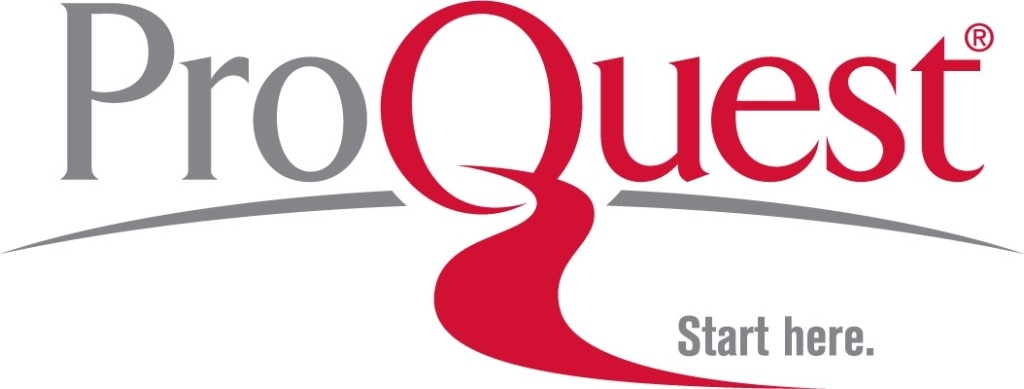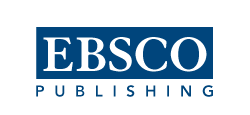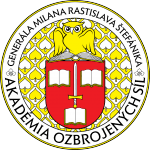Publication ethics and publication malpractice statement
• The ethical standards of publishing the journal Science & Military (here and after reffered to as “the ethical standards”) are binding for all subjects involved in the publication of the journal Science & Military (publisher, editorial board, authors and reviewers).
• The main objective of the ethical standards is to define the rights and responsibilities of all parties involved in publication process, so that maximum quality, neutrality, objectivity and transparency in the journal Science & Military is ensured.
• These ethical standards are processed according to the standards of good publication manners proposed by the international forum Committee on Publication Ethics (COPE) and contained in the Code of Conduct and Best Practice Guidelines for Journal Editors.
Duties of journal (publisher and editorial bodies)
• The journal and its sections (journal publisher and editorial bodies of journal) bind themselves to act and approach everyone involved in the publication process in accordance with the ethical standards of the journal Science & Military, with morality and exclusion of any racial, sexual, religious, ethnic or political discrimination.
• The journal accepts instruments that allow the authors and others to draw attention to violations of ethical standards, as well as measures to prevent such violations. The journal binds itself to promptly resolve any complaints, archive them and take remedial action in collaboration with the complainant.
• The editorial office accepts manuscripts of scientific texts which are corresponding with the content of the journal. Manuscripts are reviewed in anonymous reviewing procedure by at least two reviewers. If their opinions substantially differ, the editorial office determines a third reviewer.
• The editorial office makes the decision about the publication of text upon the results of anonymous reviewing procedure. Manuscript review process is always executed independently of the author.
• Editors or editorial office members who publish in the journal Science & Military mustnˈt abuse their position. Publishing in the Science & Military journal by members of its editorial bodies is subject to the same rules and criteria applicable to text of other authors.
• The journal Science & Military maintains the anonymity and prevents origin of conflicts of interest among the authors, journal and its managing components and reviewers.
Duties of authors
• The author is obliged to become familiar with the instructions for authors, as well as the ethical standards of the journal Science & Military and to cooperate and communicate with the publisher to maximum extent.
• By submitting a manuscript to the redaction office the author declares that the submitted work is original and authentic. Further more he/she declares that he/she has full and unrestricted copyright on work, and that this work has not been and will not be offered for publishing in another periodical (or other publicly accessible information resources), during the time between submission and the final decision of journal Science & Military on its publishing or refusal.
• The author is responsible for the content of the work and for the work not containing information subject to confidentiality under applicable law.
• Plagiarism is unacceptable! In this context, the author also declares that his contribution was written in accordance with the standards of scientific work, while respecting the proper and full citation of used authors and their works, as well as the citation standards in relation to foreign ideas, which are correctly stated in the references. This is done by signing a Statutory Declaration.
• The author is obliged to avoid offensive statements that could harm other people or the reputation of the journal Science & Military. In case that the author finds a fatal error in the published work, he/she is obliged to immediately inform the journal and render assistance during the correction process.
• The author is obliged to keep and maintain records and information related to the creation and editing of the contribution. Based on these information and upon the request of the publisher, in case of doubt or investigation of complaints about violations of ethical standards author provides proof of authorship.
• The author does not enquire for the identity of the reviewer and notifies the publisher of the facts which might jeopardize the anonymity and objectivity of the peer-review process.
• In case that the work was processed with financial support or with the participation of another person, it is essential to clearly indicate these facts, including disclosure of financial support sources of the project, the sponsor, or the grant.
Duties of reviewers
• The reviewer is obliged to become familiar with the ethical standards of the journal Science & Military, with the review form and method of its execution.
• The reviewer approaches to an assessment of the text objectively, impartially and responsibly. Reviewer binds himself to process the review in time and with the required quality.
• In the case of a conflict of interest, time constraints, lack of expertise or the inability to make the review, he/she will inform the editorial office by the deadline.
• Results of the reviews procedure form the basis for editor’s office decision-taking about the publication / non-publication of the reviewed manuscript.
• Reviewer preserves anonymity and concurrently binds himself not to abuse the acquired information and ideas in connection with the conduction of the review in self-benefit. In case of discovering any content match with already published papers, reviewer will notify the editors office.
• The reviewer does not enquire for the dentity of the author and notifies the publisher of the facts which might jeopardize the anonymity and objectivity of the peer-review process.
Procedure for dealing with cases of unethical acts
Identification of unethical begaviour
• Anyone can notify the publisher of the violations of the ethical standards of the journal Science & Military. It is inevitable to provide all the information and evidence to start an investigation of the matter in question.
Investigarion of unethical behaviour
• The journal and all its sections will make an effort to investigate the matter in question and to draw a final decision.
• The process of investigation in the journal Science & Military is impartial. It is based
on gathering all the relevant evidence. In case of violation of the principles by the journal, an impartial expert is invited.
• Any information related to investigation and results arising from it will not be provided to other people than those who are directly concerned.
Minor breaches of Ethical Standards
• Minor breaches are handled internally (not publicly and without participation of other people and bodies).
Serious breaches of Ethical Standards
• Serious breaches of Ethical Standards are handled by the Chairman of the Editorial Board cooperation with the Editorial Board and the publisher. In order to assess the level of prospective breach objectively it is possible to invite other persons and bodies for investigation and consultation.
Outcomes of the investigation of breaches of Ethical Standards (results of the investigation)
• The final decision depends on the seriousness of ethical principles violation or unethical behaviour.
• The result of the investigation could be in form of informing and advising the aggrieved person on the results, written warning (formal reprimand with an alert notice) or withdrawal of the text or the whole copy of the journal.
• By the decision made the aggrieved person could be banned from publishing in the journal Science & Military for a given period of time (if the person in breach is an author), review contributions (if the person in breach is a reviewer) or he/she could be with drawned from the position and his/her membership could be cancelled of the membership (if the person in breach is a member of the Editorial Board).
• In addition, the final results of the investigation may be reported to an employer or provided to the superior governing authorities for further investigation and the imposition of measures by the nature of the offense.










 Editorial Office Science & Military
Editorial Office Science & Military